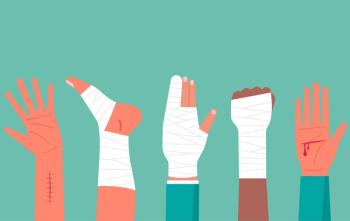
Death and Personal Aid in Dying (PAID)
Key Takeaways
- Ethical considerations in medical aid in dying focus on autonomy, suffering, and the role of physicians in the process.
- Terminology varies globally, reflecting cultural, religious, and ethical differences, with "personal aid in dying" suggested for clarity.
The complex ethics of dying, death, and assisted dying lead to debates on terminology and implications for patient autonomy and suffering.
PSYCHIATRIC VIEWS ON THE DAILY NEWS
As we continue our series on past lives, dying, death, and the afterlife, on the general timetable we go by, next is dying and then death. We first started to cover these controversial topics about 2 months ago, starting with my column “
Basically, I had emphasized the ethics of autonomy and suffering for patients. I believe—and certainly can be misinterpreting this—that Dr Komrad emphasized the ethical inappropriateness of physicians being responsible for any process inducing death. Dr Di Nicola conveyed his rare expertise in both philosophy and psychiatry, centering on the implications of the long ago suicide of Socrates.
No need now to go over these distinctions, but it seems to me that there are some general issues left to cover on dying and death. One is what to even call the process of aiding death in patients and people, now available in 11 jurisdictions in the United States, Canada, much of Europe, and elsewhere. Here are some of the most common terms, along with my interpretations:
- Medical aid in dying (MAID). Though emphasizing naming physicians per se, emphasizes more generally some aspect of medicine.
- Physician-assisted dying. Here the physician is the party responsible for assisting in the death.
- Physician-assisted suicide. This is where the physician provides the fatal medication, but the patient is the one who takes it.
- Aid-in-dying and assisted dying. These are overlapping terms that refer to any method assisting death in some sort of recognized medial context.
- Assisted suicide. Calling what the patient does to die a suicide.
- Death with dignity. This is emphasizing what is viewed as a dignified process in dying, rather than extreme pain or emotional volatility.
- Mercy killing. On occasion, a partner will claim it was mercy that justified killing the suffering partner, but that is open to being otherwise interpreted as a homicide.
- Euthanasia. Here, the physician conducts the process causing death, as in Canada.
It seems to me that the key word as far as medical ethics goes is “suicide.” Generally, suicide refers to a lone act of an isolated individual, not only without medical support, but with clinicians doing whatever they can to stop the suicide if they become involved—that is, the death. It is hard to conclude that helping a patient with a terminal illness, often very painful and evolving, is the same as an isolated suicide that intentionally avoids medical involvement, even if that intentionality is also a call for help.
Given the example I have in my first column, Switzerland allows aid for any adult who so desires and seems in sound mind, however that is determined. The example was that of the psychologist Daniel Kahneman, who went there to die because he was ready—a life completion, if you will—not because he had any significant illness.
Taking all that into account pushes me to recommend the most general terminology. That might be “personal” or “public” instead of “medical” or “patient.” Personal is the person asking for help, regardless of whether they are also a patient in a medical system. Then use “dying” instead of “suicide.” The person wants to die in as comfortable a way possible to relieve suffering and worsening terminal illness. A therapeutic chance to tie up any loose ends in relationships and conflicts is often desired, too. Usually, they cannot commit the death themselves. Loved ones could do the task but would generally be in legal homicide trouble. Hence, I am left with, for now, “personal aid in dying.” However, just the fact that there are so many terms, including some I probably missed listing, suggests that we in society are currently unsure what this is exactly and clearly all about, and what takes priority.
Now, as some countries start to include ongoing and severe mental disorders as being acceptable for aid in dying, that adds to the controversies. It seems to be the opposite of treating those with mental illnesses. It also seems to ignore or reinterpret what “sound mind” and the like means. It presumes that whatever the state of mind may be is enough to get the aid.
For some, costs also come into play. When private funds need to be used, the poor are often eliminated, an ethical and moral concern in itself. The acronym PAID speaks to the coverage need.
Another reason for the variation in names and processes globally is varying cultural and religious values. Some countries and cults instruct or force citizens to process their own death. That removes personal autonomy.
Basically, I always go back to the Preamble in our medical and psychiatric ethical principles: “recognize responsibility to patients first and foremost.”
If anyone enters an aid in dying process where medicine and physicians are involved, including hospice and palliative care, and still continue to cry out for help to reduce increased suffering of any kind, so be it. Take away this cumbersome argument. They need our help. If somehow and someday more processes are set up without medical and physician involvement, I would then use the generic term of personal or person.
It may be apparent that we need some global principles on aid in dying. However, they seem to be lacking in the World Health Organization, World Psychiatric Association, and World Association of Social Psychiatry. As such, a global task force seems indicated to develop such principles as well as ICD coding for the process.1 And you?
Dr Moffic is an award-winning psychiatrist who specialized in the cultural and ethical aspects of psychiatry and is now in retirement and retirement as a private pro bono community psychiatrist. A prolific writer and speaker, he has done a weekday column titled “Psychiatric Views on the Daily News” and a weekly video, “Psychiatry & Society,” since the COVID-19 pandemic emerged. He was chosen to receive the 2024 Abraham Halpern Humanitarian Award from the American Association for Social Psychiatry. Previously, he received the Administrative Award in 2016 from the American Psychiatric Association, the one-time designation of being a Hero of Public Psychiatry from the Speaker of the Assembly of the APA in 2002, and the Exemplary Psychiatrist Award from the National Alliance for the Mentally Ill in 1991. He presented the third Rabbi Jeffrey B. Stiffman lecture at Congregation Shaare Emeth in St. Louis on Sunday, May 19, 2024. He is an advocate and activist for mental health issues related to climate instability, physician burnout, and xenophobia. He is now editing the final book in a 4-volume series on religions and psychiatry for Springer: Islamophobia, anti-Semitism, Christianity, and now The Eastern Religions, and Spirituality. He serves on the Editorial Board of Psychiatric Times.
Reference
1. Güth U, Weitkunat R, McMillan S, et al.
Newsletter
Receive trusted psychiatric news, expert analysis, and clinical insights — subscribe today to support your practice and your patients.






